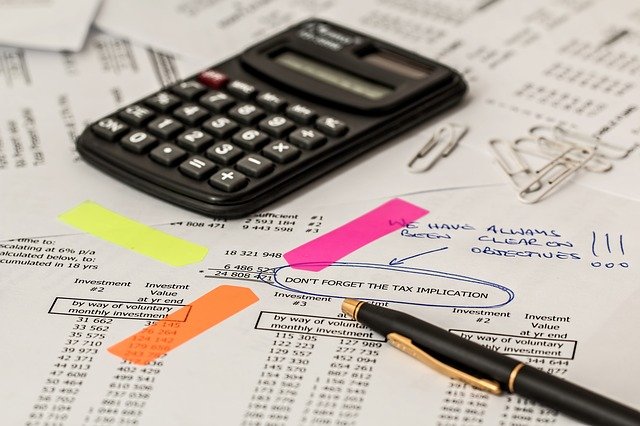Business Asset Disposal Relief: Our Guide

Capital Gains Tax is an area of confusion for millions of people, with an array of tax reliefs, rates, eligibility criteria and regulations – including Business Asset Disposal Relief. But with the right advice, it doesn’t need to be so complex.
Here we’ll explore the scheme previously called Entrepreneur Relief and renamed in the Finance Act 2020.
Now, the first thing to clarify is that, while the name might lead you to assume this tax relief applies to businesses, the opposite is true.
Entrepreneurs’ Relief conditions apply to:
- Individuals who are selling business assets
- Trustees that are disposing of an asset on behalf of a trust, depending on the conditions – for example, Business Asset Disposal Relief doesn’t apply where the whole trust is a discretionary settlement
We’ll explain in a bit more detail. Still, it’s essential to understand that Entrepreneur Relief is all about people selling their interests in a business – not company asset sales.
What is Entrepreneurs’ Relief?
So, the now renamed Business Asset Disposal Relief applies to people selling business assets, which could be:
- Company shares (including in their own company)
- A sole trade business and the associated assets
- Interests in a joint venture
- Partnership interests and any business assets
In short, Entrepreneurs’ Relief conditions mean that you can pay less Capital Gains Tax on any company assets sold from April 2008 onwards.
Why is Business Asset Disposal Relief applicable to so many Hudson Weir clients?
Because many qualifying asset disposals are made by directors or shareholders closing a solvent business – including in a voluntary liquidation scenario.
What are the Entrepreneurs’ Relief conditions?
There are a few criteria and rules, as you’d expect with any tax relief regime.
First, note that there is a lifetime limit, depending on when you dispose of your business assets. Capital gains disposals qualify for Business Asset Disposal Relief within the below parameters:
| Disposals on or after: | Lifetime limit: |
| April 2008 – April 2010 | £1 million |
| April 2010 – June 2010 | £2 million |
| June 2010 – April 2011 | £5 million |
| April 2011 – March 2020 | £10 million |
| March 2020 onwards | £1 million |
Can I qualify for Entrepreneur Relief limited Company Tax relief?
To apply, you’ll need to be selling all or part of your business and meet the below criteria:
- Being a sole trader, business partner, or employee
- Holding at least 5% of the ordinary share capital and 5% of voting share capital – for at least one year
- Having owned the business for at least two years
A lot also depends on whether you are disposing of all company assets or a limited number of shares.
Both scenarios qualify for Business Asset Disposal Relief, but you’ll need to be clear about the nature of the disposal to apply.
How much could Business Asset Disposal Relief save me?
The flat rate of 10% Capital Gains Tax applies to all qualifying disposals.
The profit on those disposals is taxed at a 10% rate, and you can either claim through your Self-Assessment Tax Return or by submitting form HS275 (still called Entrepreneur Relief on the HMRC website).
To calculate your tax liability:
- Work out the profit earned on the asset disposal
- Deduct your tax-free Capital Gains Allowance (£12,300 for individuals and £6,150 for trusts)
- Apply a 10% tax rate to the remaining profit
The standard Capital Gains Tax rates depend on your income tax band but start at 20% for higher rate taxpayers, up to 28% for additional rate taxpayers.
What asset disposals are eligible for Business Asset Disposal Relief?
Businesses can hold a wide range of assets, and so it can be tricky to calculate your exact profit – say if you’re selling a whole company and need to include goodwill in those figures.
Allowable asset sales included under the Entrepreneurs Relief conditions include:
- Business assets sold as part of a full or partial business sale, sometimes excluding goodwill – that includes business premises
- Selling assets used by your personal company or business partnership within three years of the business ceasing trading
- Shares or securities in a trading company / holding company of a trading group – sold either while the company is trading, or within three years from the date it ceased trading or to be a member of a trading group
- Personal assets owned by you but used in a partnership or a personal trading company
As we can see, there is a tremendous potential tax-saving here.
Still, you’ll need to apply for Business Asset Disposal Relief – it isn’t automatically granted, and the default is that you will pay Capital Gains Tax at the standard rate.
For directors and shareholders, this can make a significant difference to their tax position. It’s highly advisable to contact Hudson Weir if you are considering selling all, or part of your business, to ensure you take advantage of the tax relief on offer.














